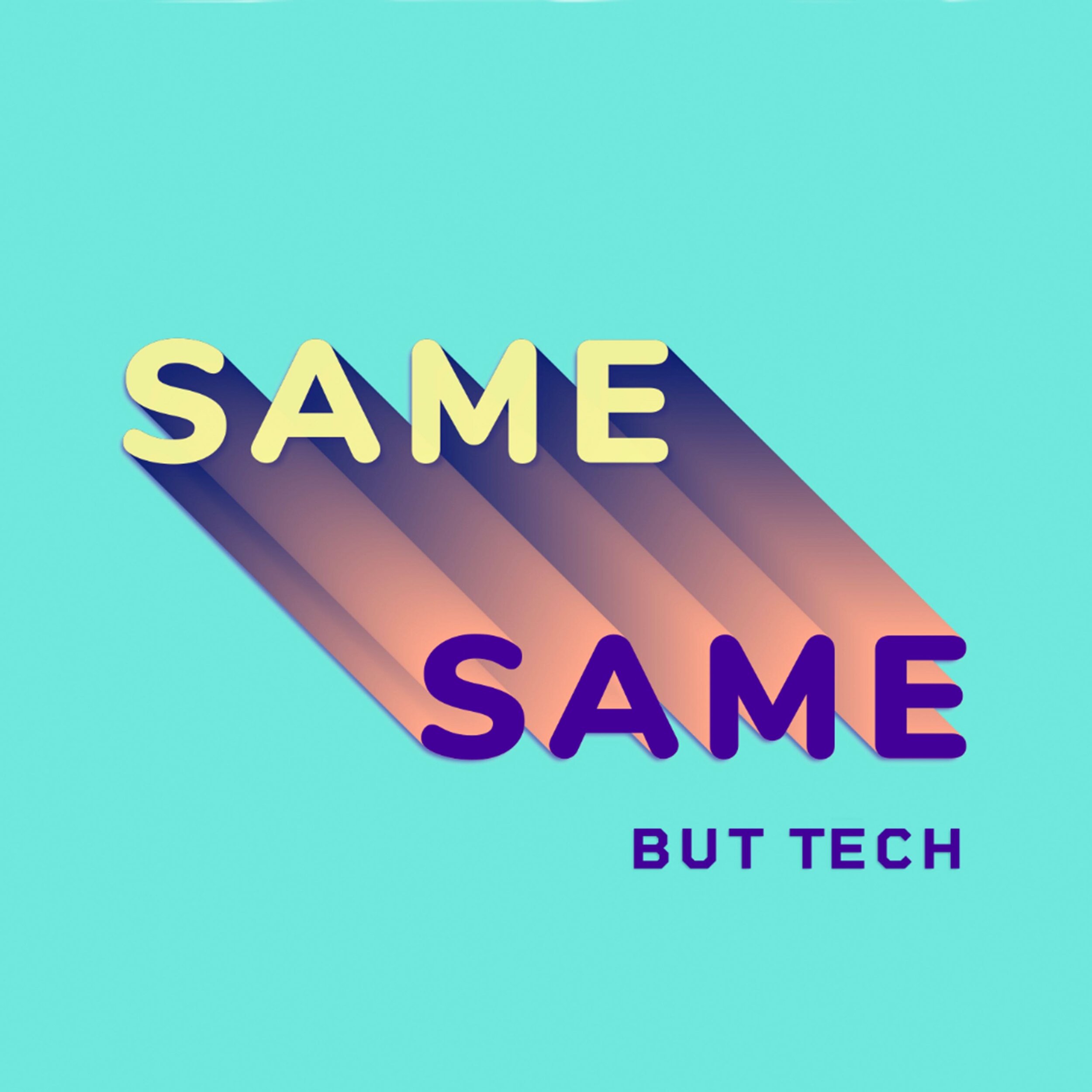Case Study: BCGDV
Same Same But Tech is a podcast from Boston Consulting Group’s Digital Ventures group (BCGDV). The group had never produced a podcast before Same Same But Tech. Red Cup worked with a small, dedicated team from BCGDV that included a podcast host and creative director, producer, executive producer, and later on, a marketing and PR team. The podcast is slated to have at least two seasons in production.
Development
Same Same was originally intended to be a short-form interview style podcast. But its mandate, to cover the tech buzzwords of our day, becoming a dictionary for tech, demanded a deeper approach. The team always assumed that each episode would include two interviews conducted by the host, often recorded in different cities. The host traveled frequently, so we recorded him in London, New York, Santa Monica, and Portland. The guests were often in similarly far-flung cities. To tackle our topics, we soon realized, would require more than interviews. We needed a narrative form of storytelling, often practiced by NPR and podcasts like Serial. So we pivoted. Same Same became an immersive experience, with many music tracks, sound effects, even a few jokes. We leaned heavily into scripting, building a narrative arc for each episode, allowing time for the host to review and talk through all the material covered in each episode.
Guest Booking and Scheduling
For a podcast like Same Same, having name guests was crucial. Because of the statue of Boston Consulting Group, and the connections in place by the host and by Red Cup, even before we launched our first episode, we had C-suite level guests form x.ai, Google, Gemini, and ConsenSys, and as the show rolled out, we got guests from Waymo, YouTube, Rent the Runway, and more. Lee Schneider, production lead, attended every recording session remotely, via Zoom or conference call, to be sure we were getting the storyline we needed from guests and host, to call for re-takes if needed, and to monitor audio quality.
Pivot to Remote
Partway into our Season 1 production, the coronavirus lockdown arrived. The studios we normally used for recording sessions had to shut down. We pivoted to remote production. We created a home recording setup for our host, adding audio treatment to his recording environment to go with his high-quality microphone. We sent good microphones to our guests and coached them through the process of getting a good recording. We used Zoom-like recording platforms like Cleanfeed and Squadcast to improve the quality of our remote recordings.
Post-Production and Mix
Most of our productions use interview transcripts as the basis of our post-production activities. Same Same still uses transcripts, but adds script writing to the process. The production team would select the best parts of the interviews and include them into a narrative line spoken as voice over by the host. Sound effects and music completed this experience. We brought on additonal editors and a sound mixer to deliver the end result — an immersive experience with many audio tracks — that pulled the listener into the story.
Same Same is a weekly podcast. To deliver at that cadence, we developed two types of episodes. A long form episode would include two guests and a narrative line carried by the host. Our long form episodes were scripted and usually ran about 30 minutes. A short form episode ran about 15 minutes and was composed of a simple interview format with the host and one guest. We alternated these long form and short form episodes to deliver more shows and more value to the listener.
Distribution
Same Same chose Simplecast as its podcast host. To help with traction, Red Cup produced a sizzle reel, an audio trailer, and audio ad spots for Spotify.
